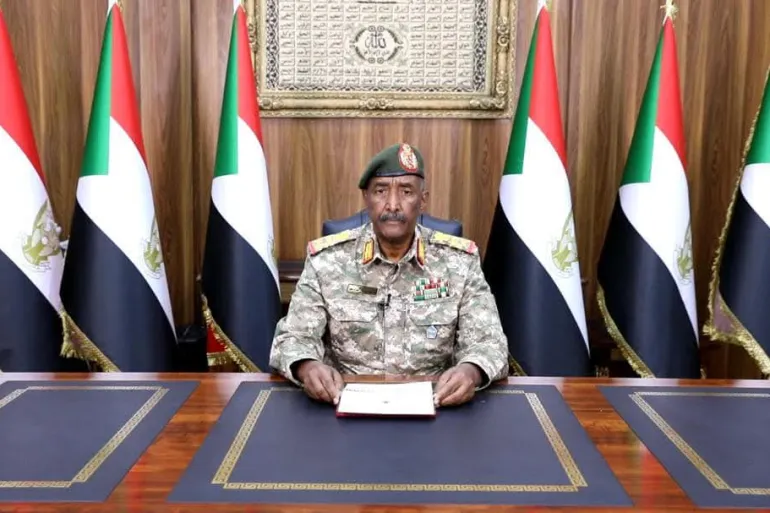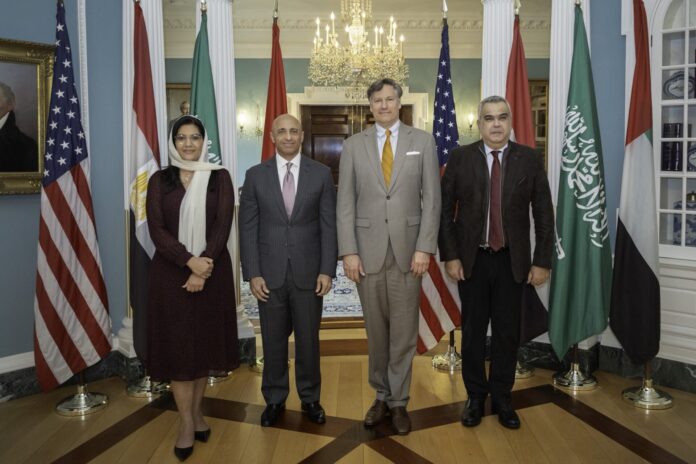Al-Yurae – Washington Hosts today Renewed Diplomatic Push on Sudan Amid Divisions Within the Quad
Amid an accelerating diplomatic campaign led by the international Quad mechanism on Sudan, attention turns to Washington this week, where officials from the United States, Saudi Arabia, the United Arab Emirates, and Egypt are meeting in a new bid to halt the war that has raged since April 2023 — a conflict described by the United Nations as one of the world’s worst humanitarian catastrophes.
The four nations aim to pressure Sudan’s warring parties — the Sudanese Armed Forces (SAF) and the Rapid Support Forces (RSF) — into agreeing to a three-month humanitarian truce that could pave the way for comprehensive political negotiations. A similar initiative, launched in September, called for a cessation of hostilities followed by an inclusive peace process and a roadmap excluding the Islamist movement, widely blamed for fueling the current war.
Fault Lines Inside the Quad
Despite consensus on the necessity of ending the war, internal disagreements persist over the shape of Sudan’s future political transition. The UAE continues to advocate civilian leadership for the post-war transition, while Egypt insists that the Sudanese military should oversee and guarantee stability during the interim period.
Abu Dhabi’s position stems from the failed experience that followed the fall of Omar al-Bashir’s regime in 2020, when the military assumed control, later toppling the civilian government in the 2021 coup — an event viewed as the prelude to the present war, encouraged by Islamist networks.
Cairo, however, argues that weakening the army could open the door to renewed fragmentation and greater foreign interference in Sudan, insisting that maintaining a cohesive military structure is vital for preserving state unity and regional balance.
Difficult Talks in Washington
Diplomatic sources expect tough negotiations in Washington, citing entrenched rivalries between regional sponsors and the hardline stances of both warring parties. According to AFP sources, the meetings seek “to pressure both sides to uphold a nationwide humanitarian truce for three months” through indirect engagements held separately with each faction.
Meanwhile, the Democratic Civilian Alliance (Sumud) led by Abdalla Hamdok has voiced full support for the Quad’s peace efforts, describing the roadmap as reflective of the aspirations of wide segments of Sudanese society. The alliance further called for the creation of a broad coordination mechanism linking international, regional, and local peace efforts to accelerate progress toward stability.
Sudan Denies Any Talks in Washington

The Sudan Sovereignty Council on Thursday categorically denied the existence of any direct or indirect negotiations with the RSF in Washington, asserting via its account on Platform X that such reports were “entirely baseless.” The council reiterated that Sudan’s position remained unchanged: commitment to a national solution that safeguards sovereignty, unity, and stability.
Council chief Gen. Abdel Fattah al-Burhan had earlier reiterated his readiness to engage in negotiations “that serve Sudan’s unity and dignity,” while rejecting any externally imposed peace settlement.
Intensified Regional Contacts
Despite official denials, regional consultations have continued behind the scenes. Earlier this month, Egyptian President Abdel Fattah al-Sisi met Massad Boulos, senior adviser to U.S. President Donald Trump for the Middle East, to discuss pathways toward ending the war and reinforcing regional mediation efforts.
According to diplomatic sources, the Washington proposal outlines a phased roadmap beginning with a three-month truce, followed by a nine-month transitional process leading to the formation of a civilian-led government representing the Sudanese people’s aspirations.
Yet that goal remains far off. Sudan faces a deepening humanitarian calamity, with over 20,000 people killed and 15 million displaced or forced to flee, according to U.N. assessments. Academic studies estimate the death toll may exceed 130,000 since the conflict erupted in mid-April 2023.
The meetings in Washington thus represent a fresh but fragile attempt to revive hope for peace — an effort fraught with competing agendas and the immense pressure of a humanitarian crisis that grows more dire by the day.


